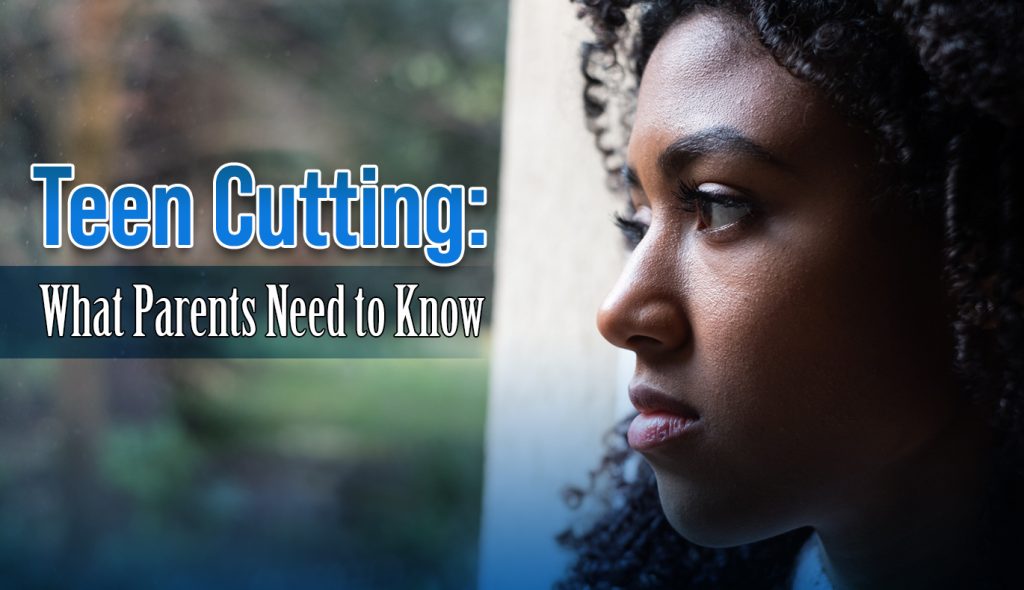The number of teen cutting cases is on the rise in the U.S.
One in every 200 girls between 13-19 years old cut themselves regularly. With life becoming increasingly stressful for teens, the number of teens engaging in self-harm is expected to continue to grow.
Because this is a relatively new challenge for teens (most Gen Xers didn’t know a single person who engaged in self-harm), parents need to know that cutting (or self-harm) is a serious problem. It needs to be taken seriously and addressed immediately.
What is Cutting?
Cutting is the deliberate infliction of harm upon oneself, usually by cutting or burning one’s own body.
Who Typically Engages in Cutting?
While kids of any age—boy or girl—have engaged in cutting, the highest instances occur in the following:
- Girls aged 13-19
- From upper middle-class homes
- Average to high intelligence
- Victims of physical or sexual abuse
Why Teens Cut
Cutting, to many teens, represents control. They may be trying to drown out hurts, wounds, past or current physical or sexual abuse, or peer rejection. In essence, teens see cutting as a coping mechanism to manage the pain they don’t know how to process.
Signs of Cutting
Because teens are secretive about self-harming behavior, it may be difficult for parents to know if their teen is engaging in cutting. Here are some signs to look for:
- Wearing long sleeves and pants, even in hot weather
- Knives, razor blades, pins, or broken glass in your teen’s room/bathroom
- Refusing to change in a locker room
- Unexplained injuries
The Dangers of Cutting
First and foremost, engaging in self-harm rather than seeking help and healing from emotional trauma is mentally, physically, and spiritually unhealthy.
Beyond this most important of dangers, the following are also dangers of cutting:
- Wounds that become infected or leave scars
- It becomes addictive to most teens who try it
- Leads to drug and alcohol abuse
- 70% of teens engaging in self-injury have made at least one suicide attempt
- 55% make several suicide attempts
How to Respond
One of the most important things you need to know is this—there is hope and healing for teens who cut. No one is ever too far gone.
If you suspect or learn your teen is cutting, counselors advise approaching them lovingly, not with condemnation or accusation. Remember—they aren’t happy with their behavior and are hurting. They need your support.
Begin by having an open conversation, then seek professional help immediately from a licensed therapist.
A teen needs to know that they cannot stop this behavior on their own. Only with the help of God can a teen truly find total healing, peace, and deliverance from this behavior. That’s why we strongly recommend seeking the help of a Christian counselor in your area.
Where to Find Help
A Christian counselor can be of great help. Additionally, we recommend reaching out to a facility like the following:
More Information
www.self-injury.org (Christian-based self-injury information and resources)
www.selfinjury.com (S.A.F.E. Alternatives (Self Abuse Finally Ends) 1-800-DON’T-CUT)








